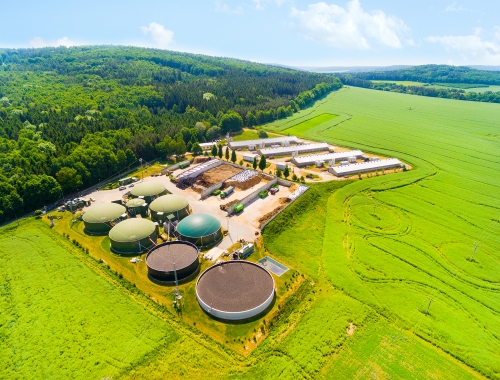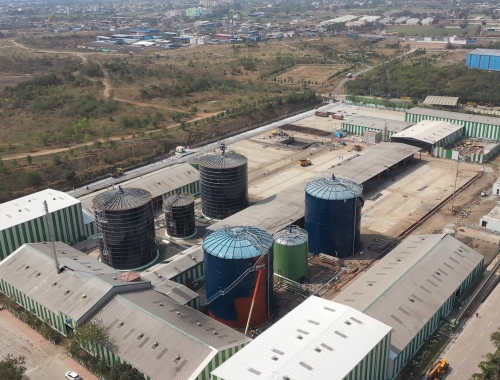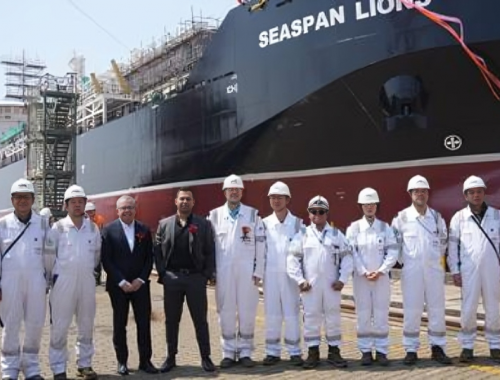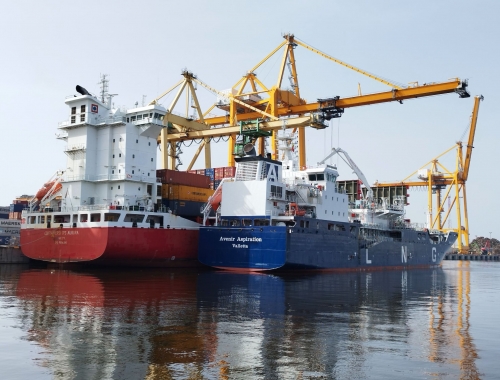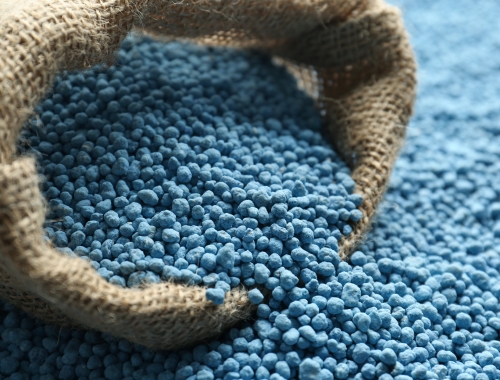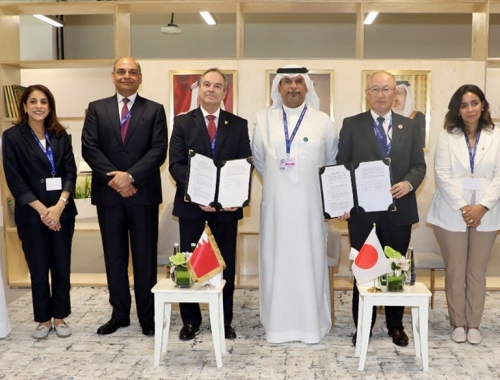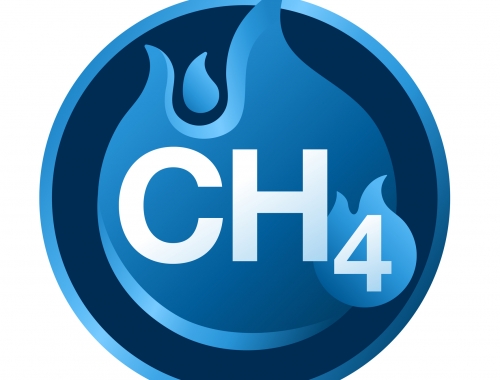Egyptian gas hub ambition back on track
SUMMARY
Egypt has benefitted from rising gas production, increased regional cooperation and a spike in global LNG prices.
By Gary LakesPOSTED IN:
Featured Africa Social Innovation Environmental Innovation Egypt
Egypt’s long-standing intention to establish itself as the regional East Mediterranean gas hub has been bolstered in recent weeks with a number of positive developments and the anticipation that more good news is likely during 2023. Egypt already derives around 90% of its electricity from gas, but by embracing the role as a hub, it can export more gas to assist other countries in their decarbonisation efforts.
With several major reforms in its energy sector and significant foreign investment, Egypt’s energy industry has seen a major turnaround from where it was a decade ago, when it was struggling with the aftermath of the Arab Spring and domestic political turmoil, serious financial problems and the unwillingness of foreign partners to invest and boost oil and gas output for a local market where supplies were running scarce and LNG had to be imported.
Since the discovery in 2015 of the giant offshore Zohr gas field by Eni and the redrawing of business relations with the country’s foreign operators, Egypt’s gas industry made a comeback by 2020 that allowed its energy officials to speak repeatedly of the country becoming a regional gas hub. While there were no firm plans on regional infrastructure at the time, there was wide speculation that gas from Israel and Cyprus would find its way to Egypt from where it and Egyptian gas would be liquified and shipped to global LNG customers.
The COVID pandemic and Russia’s invasion of Ukraine tossed the world’s gas markets and supply systems up in the air. But as 2023 opens, the fog of it all appears to be clearing in some regions, enabling Egypt to focus on its goal as other East Mediterranean countries aligned their own with Egypt’s.
Egypt saw a good year in its gas sector in 2022. Gas exports, most of them in the form of LNG, rose to 8mn metric tons, bringing in $8.4bn in revenues, the petroleum ministry announced in late December, up from under 7mn mt in 2021 that brought in $3.5bn. The revenue jump is attributed to the spike in global LNG prices.
Egypt exports LNG from two facilities on its Nile Delta coast – Idku, operated by Shell with a capacity of 7.2mn mt annually, and Damietta, operated by Eni with a capacity of 5mn mt. While Egypt is striving to boost its gas exports above 8mn mt in 2023 and beyond, Israel and Cyprus both plan to use excess capacity at Egypt’s LNG plants to export their own gas. This possibility is a key topic among the members of the East Mediterranean Gas Forum (EMGF), which was founded by Egypt before the pandemic took hold and headquartered in Cairo.
Steps so far
Steps towards an Egyptian gas hub have already been taken. Israel began to export gas to Egypt in 2021 through the East Mediterranean Gas (EMG) pipeline that runs offshore from Ashkelon to El Arish. And Egypt has resumed exports to Jordan through the Arab Gas Pipeline (AGP), which was originally intended to transport Egyptian gas to Lebanon, Syria and into Turkey.
Last June, Egypt, the EU and Israel signed a memorandum of understanding allowing for Israel to export gas to Europe through Egypt’s LNG facilities. And while Cyprus has yet to become a gas producer, it is very likely that the island will ship the gas from its Chevron-operated Aphrodite field to Egypt through a subsea pipeline for re-export as LNG beginning as soon as 2026. That plan for Aphrodite was drawn up by Noble Energy in 2019 before the company was purchased by Chevron.
Moreover, there is considerable speculation that as Italy’s Eni is the top investor in the Cyprus offshore and also a major player in Egypt’s gas sector, any future gas production from the Eni/TotalEnergies partnership discoveries in Cyprus could be exported to Egypt through Eni’s existing offshore infrastructure to the LNG plant at Damietta. While such a step is not near, it does come up during the course of conversation.
Europe’s decision to stop importing gas from Russia has reinforced the argument that Egypt, Israel and Cyprus have long made – that Europe is their closest market and that they are well placed to supply Europe with the gas that they produce (or expect to produce) for export. It appears that that scenario will likely materialise by 2030 and that Egypt will indeed be the East Mediterranean gas hub.
Speaking to Egyptian media in early January, petroleum minister Tarek El Molla said Egypt’s success stemmed from its ability to remain attractive to its partners, among them: Chevron, Eni, ExxonMobil, BP, Apache, TotalEnergies, Shell and a number of other firms.
“We’ve been able to attract more investments in upstream activities and especially for exploration and development of natural gas,” he said. “Offshore activities were very well planned with our strategic partners, and we have a very important and aggressive exploratory drilling campaign, which started mid-2022 and is being extended and expanded till the end of 2023 and 2024, through which we will be able to drill more than 31 wells – important exploratory wells in offshore west and east of our Mediterranean exclusive economic zone [EEZ].”
To that end, the Egyptian Natural Gas Holding Company (EGAS) announced in late December the launch of a new licensing round for blocks in Egypt’s Mediterranean and Gulf of Suez EEZs through the new digital portal, the Egyptian Upstream Gateway (EUG), which provides all the relevant information regarding participation in the bid.
El Molla said the new bidding round is an extension of the ministry’s work strategy that started in 2016 and which was designed to attract more investments for oil and gas exploration in promising areas, especially in the Mediterranean EEZ. He said the work strategy is meant to attract new international companies and encourage those already in the country to increase their investments and expand their work areas.
In an interview with Egypt Oil & Gas in early January, El Molla said that during 2023 he would like to see an increasing improvement in energy efficiency. “Energy efficiency will allow us to save costs, enable more efficient production, and help us save more natural gas, which we will be able to export and generate more revenue from.”
Further good news can be drawn from the discovery in December of 3.5 trillion ft3 of gas by Chevron and Eni at the Nargis-1 well, located in the 1,800 sq km Nargis Offshore Area concession in the Mediterranean and near Eni's offshore infrastructure.
“Chevron is encouraged and excited by the success of this first exploration well which encountered high-quality reservoirs and follows from Chevron’s entry into the Egyptian upstream sector in 2020,” Clay Neff, head of Chevron International Exploration and Production said in a statement. “The Eastern Mediterranean has abundant energy resources, and their development is driving strategic collaboration in the region,” he added.
Chevron, as previously stated, is the operator of Cyprus’ Aphrodite field, where it is partnered with Shell and Israel’s NewMed Energy. It is also an operator at Israel’s offshore Leviathan gas field, where NewMed – formerly Delek Drilling – is a partner, and the Tamar gas field. Chevron is expected to draw up its own plan for Aphrodite in early 2023. The plan could bulk-up Neff’s reference to “strategic collaboration” if Chevron opts to link Aphrodite to Leviathan.
Partnered with Chevron in the Nargis concession is Eni, which like Chevron holds 45%. Egypt’s Thawra Petroleum holds 10%. The Nargis discovery is now set to be fast-tracked into production. EGAS has said it wants to expedite production through a rapid development program using existing facilities. Eni’s Thekah platform is only 40 km southwest of the discovery.
For its part, Eni said Nargis “can be developed leveraging the proximity to Eni’s existing facilities.”
“Nargis-1 confirms the validity of Eni’s focus on Egypt Offshore, which the company will further develop thanks to the recent award of exploration blocks North Rafah, North El Fayrouz, North East El Arish, Tiba and Bellatrix-Seti East,” the company said in a statement.
In Egypt since 1954 and operating through its IEOC subsidiary, Eni is the leading hydrocarbon producer in Egypt with equity production of 350,000 barrels of oil equivalent/day.
In recent years Egypt gas production and exports have made profound progress. According to BP’s Statistical Review, the country produced nearly 70bn m3 of gas during 2021. By all appearances, gas output is likely to continue and contribute not only to Egypt’s own future, but also to the countries in the East Mediterranean as well as those in the EU.

